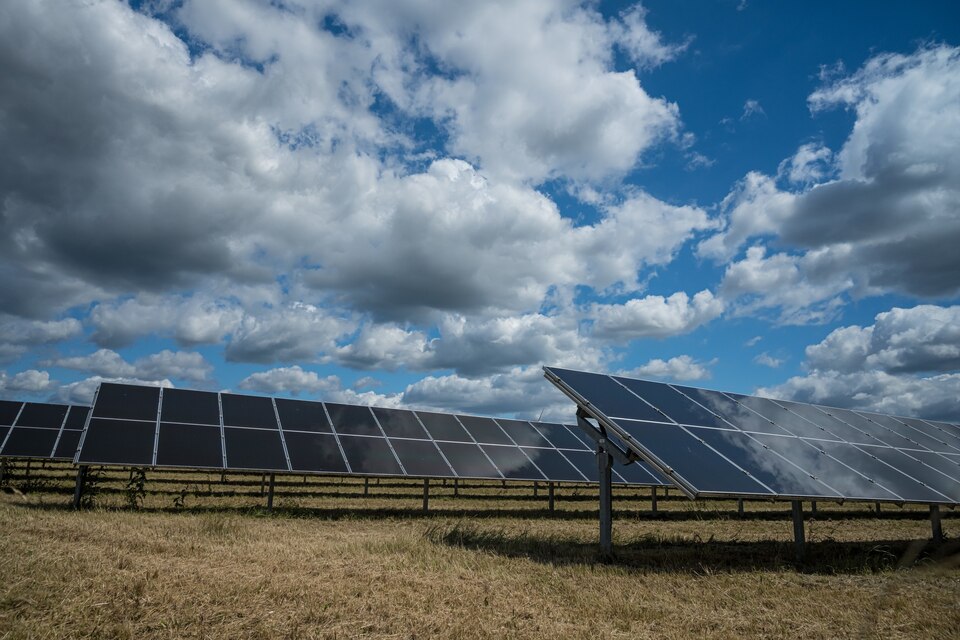Solar Energy overview
Solar energy is a ray of hope in the current era of increased environmental consciousness and an urgent need for sustainable energy alternatives. Its ability to draw energy from the sun’s vast storehouse offers a clean, sustainable substitute for traditional fossil fuels.
This blog explores the environmental advantages of solar energy, highlighting how important it is to reducing pollution, preventing climate change, and protecting natural resources. By utilizing solar energy, we can greatly cut greenhouse gas emissions, enhance air quality, and lessen the demand for limited resources. We’ll examine how solar energy presents a viable route to a more environmentally friendly and sustainable future.
Harnessing the Power of the Sun
Photovoltaic (PV) or concentrated solar power (CSP) systems convert sunlight into electrical energy, the source of solar power. On the other hand, solar energy produces no greenhouse gases, in contrast to traditional fossil fuels like coal, oil, and natural gas. Utilizing the sun’s energy, we can produce electricity without adding dangerous pollutants to the atmosphere, which makes solar power an essential tool in the fight against climate change.
The fundamental characteristic of solar energy is its direct conversion of sunlight into electrical energy, a process made possible by concentrated solar systems or photovoltaic technology. This stands in sharp contrast to technologies reliant on fossil fuels, which burn limited resources to generate power, causing the atmospheric release of greenhouse gases such as carbon dioxide and methane.
The environmental advantages of solar energy become clear as we see how it provides a clean, sustainable substitute by using the sun’s limitless energy to create electricity without causing harm to the environment. This emphasizes solar energy’s importance in reducing global warming and moving towards a more sustainable energy system.
Mitigating Climate Change:
Reduced greenhouse gas emissions are one of the key environmental advantages of solar energy. One of the main causes of carbon dioxide (CO2) emissions, which promotes heat retention in the Earth’s atmosphere and exacerbates global warming, is the burning of fossil fuels for electricity production. We can significantly reduce our reliance on fossil fuels and CO2 emissions by switching to solar energy.

A large-scale switch to solar energy might stop billions of tonnes of CO2 from entering the atmosphere yearly. When solar energy replaces traditional fossil fuel-based electricity generation, it plays a crucial role in achieving carbon neutrality and limiting the rise in global temperatures to acceptable levels.
This highlights how adopting solar power as a sustainable energy source offers substantial environmental advantages, promoting a cleaner and more ecologically conscious energy landscape. We can take steps towards a more environmentally friendly future while addressing the pressing need to mitigate climate change by working together to increase solar infrastructure and encourage using renewable energy sources.
Reducing Air Pollution:
Solar energy has several benefits, including lowering air pollution in addition to its function in preventing climate change. Particulate matter, sulfur dioxide (SO2), and nitrogen oxides (NOx) are only a few pollutants released into the atmosphere by conventional power plants that run on coal, oil, or natural gas. These pollutants cause respiratory problems, cardiovascular ailments, and ecological destruction. They also represent substantial threats to human health and the environment.
Among the environmental advantages of solar energy is its ability to generate electricity without releasing any hazardous emissions. Solar power plants can replace fossil fuel-based power plants, improving air quality and protecting public health. Several studies have shown that broad solar energy adoption might significantly decrease air pollution-related illnesses and early deaths, saving billions of dollars in medical costs per year.
This further emphasizes the critical role of solar power in enhancing public health and well-being, which is one of the major environmental benefits of solar energy. As we embrace solar power as a cleaner alternative to conventional energy sources, we may reap major advantages for both the environment and society.
Preserving Natural Resources:
The ability of solar power to protect natural resources is another vital environmental advantage of solar energy. In contrast to non-renewable and finite fossil fuels, solar energy comes from an endless source—the sun. We can harness solar electricity endlessly with the right infrastructure and technology, ensuring a stable and sustainable energy source for coming generations.
Furthermore, compared to conventional power plants, solar energy production requires less water. Facilities that rely on fossil fuels use much water for cooling and steam production, exacerbated by water scarcity and damaging ecosystems. On the other hand, solar photovoltaic (PV) panels require very little water to operate, making them a sustainable option in areas where water scarcity is a problem.
This highlights why the environmental advantages of solar energy include conserving essential natural resources while minimizing environmental strain. With continued investment in solar technology, we move closer to a more resource-responsible and sustainable energy future.
Read also: Economic Benefits of Investing in Clean Energy
Promoting Biodiversity:
Another overlooked but significant environmental advantage of solar energy is its positive impact on biodiversity. Large-scale solar farms are usually located on formerly disturbed or degraded terrain, including agricultural areas or abandoned industrial sites. These spaces can be used to produce renewable energy, which will lessen the strain on wildlife populations and natural habitats.
In addition, solar power plants have a negligible effect on nearby ecosystems compared to alternative energy production methods. In contrast to operations such as the extraction of fossil fuels or the building of hydroelectric dams, which have the potential to cause ecological disturbance and habitat fragmentation, solar farms have a negligible direct environmental impact. Through careful planning and siting techniques, solar projects can cohabit peacefully with nearby species and ecosystems, supporting conservation efforts.
This shows how the environmental advantages of solar energy go beyond emission reduction, contributing directly to habitat preservation and biodiversity conservation.
Also read: The Economic Benefits of Investing Clean Energy
Conclusion:
Solar electricity provides an excellent chance to move to a more ecologically friendly and sustainable energy system. The environmental advantages of solar energy—from lowering emissions and improving air quality to conserving resources and protecting biodiversity—make it one of the most critical components of our transition to clean energy.
To fully utilize solar energy, however, governments, corporations, and individuals must work together to prioritize sustainability in our energy laws and practices, invest in renewable energy infrastructure, and offer incentives for adopting clean energy. We can ensure future generations live on a cleaner, healthier, and wealthier planet by making solar power a fundamental part of our energy strategy.



I’m loving how this blog emphasizes the positive impact of solar energy on our environment.
I’m delighted that you appreciate the emphasis on the positive impact of solar energy on our environment in the blog! It’s essential to highlight the benefits of renewable energy sources like solar power. If you have any further questions or want to explore more about solar energy, feel free to let us know. Thanks for your positive feedback!
Reading about the environmental benefits of solar power has me feeling hopeful about our planet’s future.
I’m thrilled to hear that you’re feeling hopeful about our planet’s future after reading about the environmental benefits of solar power! It’s inspiring to see how renewable energy sources like solar are contributing to a more sustainable future. If you have any questions about solar energy or ways to support sustainability efforts, feel free to reach out. Together, we can make a positive impact!
Wow, this blog post on solar energy’s environmental advantages really sheds light on the benefits!
I’m glad you found the blog post informative! Solar energy indeed offers numerous environmental benefits, and it’s great to see that the post highlighted them effectively. If you have any further questions about solar energy or sustainability, feel free to ask. Thanks for your positive feedback!
After learning about the environmental advantages of solar energy, I’m feeling energized to support clean, renewable sources of power. It’s inspiring to see how technology is driving positive change, and embracing solar power can help us transition towards a more sustainable energy landscape.
Feeling inspired by the blog post on solar energy – it’s clear that embracing sustainable power is crucial for our planet’s future. Learning about solar energy’s environmental benefits encourages me to advocate for renewable solutions and take steps towards a more sustainable energy future.
Just finished reading about solar energy and I’m feeling optimistic about its potential to reduce our environmental impact. Learning about its environmental advantages motivates me to support clean, renewable sources of power – let’s harness the sun’s energy for a better, greener future!
After delving into the environmental benefits of solar power, I’m feeling hopeful about the possibilities for a more sustainable world. It’s inspiring to see how technology is driving positive change, and learning about solar energy’s role in reducing our environmental impact fills me with optimism for the future.
Feeling really positive after exploring the blog post on solar energy – here’s to a brighter, greener tomorrow powered by the sun! Learning about its environmental benefits fuels my optimism for a world where clean, renewable energy sources like solar power lead the charge towards sustainability.
Just read about solar energy’s environmental advantages and I’m beaming with positivity! It’s fantastic to see sustainable solutions in action. Knowing we can rely on the sun’s power for a cleaner, greener future fills me with hope and excitement for what’s to come.
Feeling inspired after diving into the blog post on solar energy – it’s incredible how we can harness the sun’s energy for a cleaner future! Learning about its environmental benefits motivates me to advocate for sustainable solutions and embrace solar power as a key player in our energy transition.
Just checked out the blog post on solar energy and I’m feeling optimistic about our planet’s green energy potential. Learning about its environmental benefits has me hopeful for a future where renewable energy sources like solar power lead the way to a cleaner, brighter tomorrow.
Finished reading about solar energy’s environmental advantages – feeling excited for the future of renewable energy! It’s inspiring to see how we can utilize the sun’s power for sustainability. Let’s keep moving towards a cleaner, greener world powered by solar innovation!
Embracing solar energy offers significant environmental benefits, particularly when integrated through net metering systems. For consumers within the Gujranwala Electric Power Company (GEPCO) region, adopting solar power not only contributes to a sustainable environment but also provides opportunities for reducing electricity bills.
I loved reading about the environmental benefits of solar energy! The insights on reducing greenhouse gases and improving air quality were eye-opening. Keep up the great work — we need more content like this!
This blog made me feel hopeful about the future! The way solar energy reduces pollution and preserves natural resources is amazing. Thank you for explaining it so clearly — it’s motivating to see how solar power can make such a big difference!